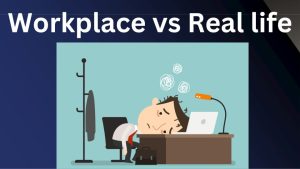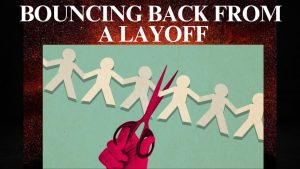The Insider Guide to Careers
Insider information, secrets and tips about getting hired and building careers. For employees and job candidates.
I received a note in May 2023 from a good friend working in a senior director role at a Silicon Valley tech company. Unfortunately, the company decided to lay him off. Even though he was doing the de facto work of a Vice President and getting compensation much below what he would get in the market (for a VP), he was still asked to leave. My friend was educated in one of the best business schools in the US and had many years of blue-chip work experience. The most surprising fact was that he was promoted to Senior Director six months earlier. What explains this conundrum that top performers are impacted by restructuring and layoffs? An understanding of a company’s economics should answer this question.
My friend was being paid way above market for the Director he was hired, somewhere near the 85th to 95th percentile. Most people getting paid at the high end of the salary range stand a high risk of layoffs. The reason is that after removing a highly paid employee, a company can replace that person with an average-paid employee (at mid-market compensation) and still have a cost saving of 20-30%. Of course, firing employees is a terrible strategy when the market is booming and there is a dearth of qualified candidates. But when the market is in a recession, layoffs everywhere, and a surplus of candidates looking for jobs, firing employees is a great way to decrease costs.
My friend understood this risk and tried to work doubly hard, to get a promotion. Since he was overpaid for the earlier role, getting a promotion increase meant he was still overpaid for the new position of Senior Director. My friend also instinctively recognized this issue and was doing double duty, including the tasks of a VP. This extra effort would typically have resulted in an unassailable situation because such people are never sacked. Unfortunately, during a recession, most people are doing double the work. Managers are doing the work of their superiors, and hence, my friend’s contributions were considered entirely normal for the changed times.
I only pity the person taking up the job my friend exited from. That person will be paid peanuts for a Senior Director position and asked to do the work of a Vice President. This craziness is part of how companies operate. The people who keep emerging from this exploitative scenario and the chaos repeatedly are the folks who ultimately rise to the top. The newsmakers we see in the media – the CEOs of big companies have all faced these problematic situations and survived. No media will talk about the gritty stories; all you will hear are stories of genius and superhuman hard work.
Dealing with layoffs and failure:
Being a part of the company promotion race, you will face some failure sooner or later. Since companies are organized like tournaments, employees are engaged in never-ending fights for compensation and promotions. There are never enough resources for everyone because of limited budgets or economic downturns. The best get promoted and advance to the final, where the winner typically becomes CEO. The company’s structure is also hierarchical, which means there is always less room upward. In the pyramidal design, only one person can be at the very top: the CEO.
It is easier to stay at the bottom, where the pyramid’s base is much broader. Competition is less fierce, and many similar jobs are always available at other companies. However hardworking and brilliant they are, most employees will finish their corporate careers as Vice Presidents. It is not that they cannot get promoted upwards, but promotions are a function of time. One becomes a manager in the thirties, a Director in the forties, and a VP in the fifties, with a lot of luck. One needs extraordinary luck to go beyond this. In your fifties, younger people who need less compensation are angling for your jobs, and you have less energy to spend on company work (unlike your roaring twenties). Before one knows it, a recession kicks in. VPs are the first to get kicked out because they are the highest cost centre. This is how most careers end, not with a bang, but with a whimper.
Even well before you become a VP, you could get laid off from companies for any reason connected with you (non-performance) or unconnected (business restructuring). The best way to minimize the risk of layoff, which is bound to happen someday, is to develop an extreme focus on one or two scarce skills, difficult to find in the marketplace. Even if a company says all employees are family, everyone is fair game when it comes to layoffs. You want to be known for your skills not just within your company but also outside it. After 15-20 years of experience, you should have something to offer that nobody else can replicate. If this is not happening, you should take a good hard look at your career and seriously consider learning new skills.
For more such articles, add me on Linkedin or join my Whatsapp community to ask me questions.



